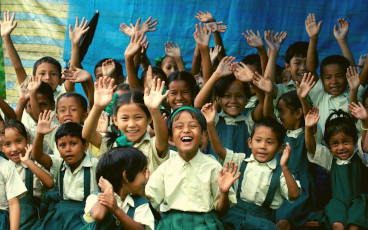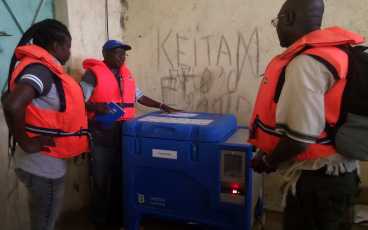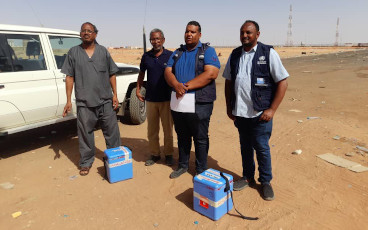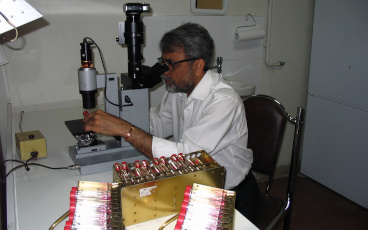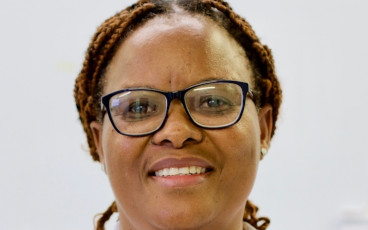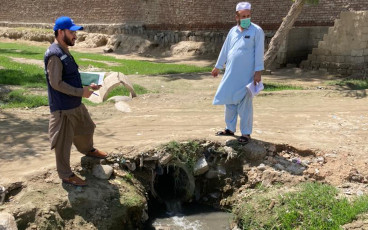Confidence in surveillance essential for certifying a polio-free world
Latest recommendations from independent global certification body
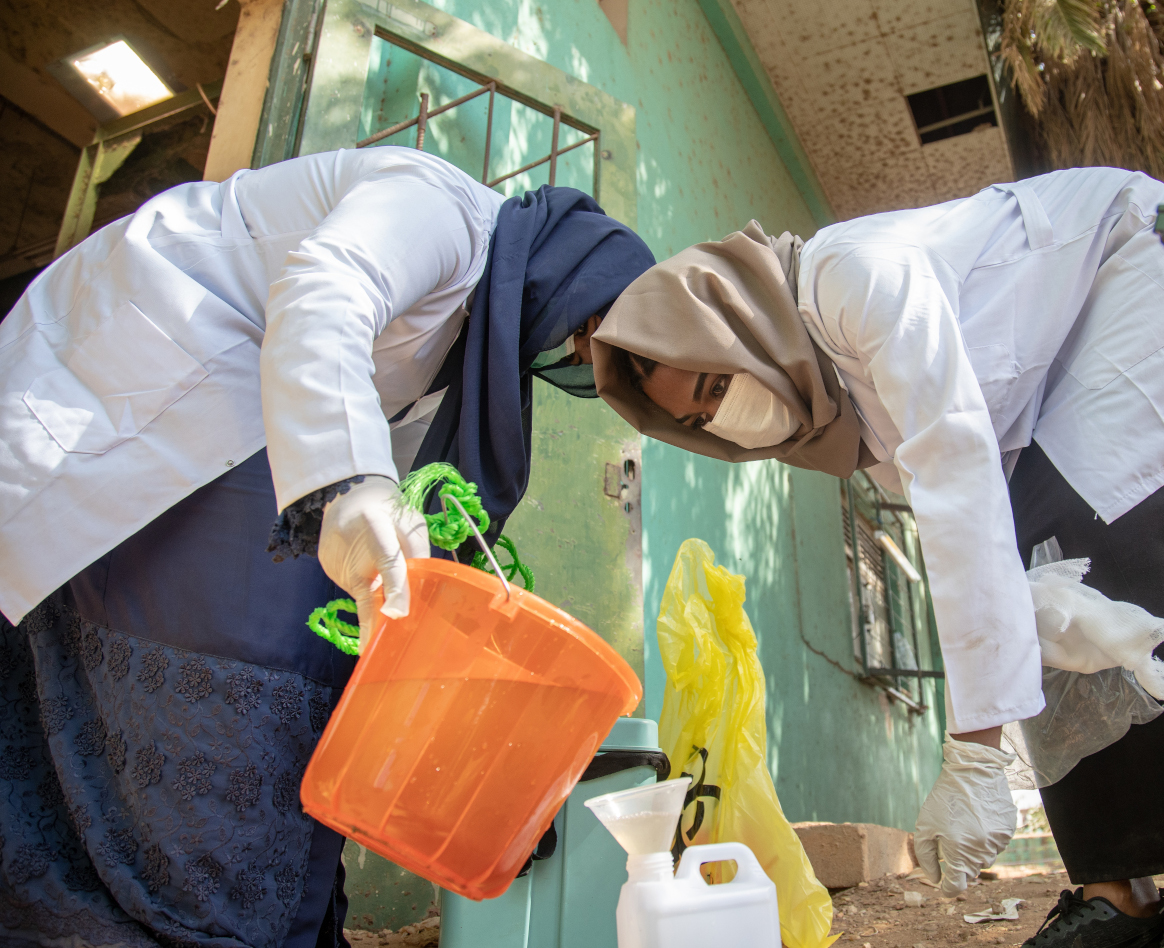
Jan 10, 2021: environmental surveillance collectors pouring wastewater for testing.
The Global Commission for the Certification of Poliomyelitis Eradication (GCC) met recently in Amman, Jordan, to review progress towards interrupting wild poliovirus type 1 (WPV1) transmission in polio-endemic Pakistan and Afghanistan, implementation of the Global Surveillance Action Plan, and to hear from the six regional certification commissions on current regional priorities and issues.
‘Deep-dive’ sessions on both endemic countries, focusing on epidemiology, virology, immunization coverage and surveillance, were valuable opportunities for the global body to be updated on current challenges being faced by Pakistan and Afghanistan country teams in achieving zero polio. The GCC commended the national programmes for their conduct of high-quality activities in the face of political instability, insecurity and other operational barriers, and concluded that 2023 presents a vital opportunity to finally stop transmission of WPV1.
On detection of poliovirus, the GCC noted the progress towards implementation of the GPEI Global Surveillance Action Plan (GPSAP) but raised concerns over shortcomings in surveillance performance, particularly the timeliness of detection and quality of environmental surveillance in some localities. The Commission reiterated the importance of environmental surveillance as a supplement to AFP surveillance, and while recognizing that its utility varies depending on ground realities, recommended that further analysis be conducted into ES system performance and for updates to be provided to the group on a biannual basis.
More broadly, the GCC stressed a need for greater confidence in surveillance systems worldwide, and particularly in the endemic countries, to detect transmission within areas and populations of greatest risk, such as those with substantial gaps in population immunity, high risk mobile groups and areas that have had silent transmission of poliovirus. The GCC called for greater granularity in GPEI reporting of progress in implementing the GPSAP and flagged a need for deeper understanding of all potential gaps, including region specific issues.
“It will be the quality of poliovirus surveillance that will allow the GCC to certify the eradication of WPV1 with the highest possible level of confidence,” said Professor David Salisbury, GCC Chair.
The GCC also recommended that immune-deficient vaccine-derived poliovirus (iVDPV) surveillance continue to be developed as an important aspect of the validation of the absence of VDPV.
Lastly, the GCC commended GPEI’s continued and intensive coordination and support of the endemic country programmes, to facilitate a smooth regional certification process when WPV1 is no longer detected and recommended that polio-free regions begin to prepare for global certification of WPV1, in line with the Eastern Mediterranean’s regional certification.
The full GCC report and recommendations will be made available in the coming weeks.


